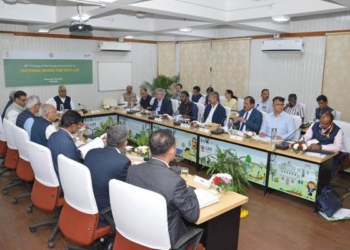New Delhi: The inward remittances to India in 2023 increased by 12.3 per cent to $125 billion from 111.22 billion in 2022, according to the latest data released by the World Bank.
India’s inward remittances now account for 3.4 per cent of the country’s gross domestic product (GDP).
The World Bank’s “Migration and Development Brief”, released on Monday, states that India continues to be the highest recipient of remittances globally, followed by Mexico ($67 billion) and China ($50 billion). India currently accounts for 66 per cent of all remittances to South Asia, higher than 63 per cent in 2022.
According to the data, the growth rate of remittances was highest in Latin America and the Caribbean (8 per cent), followed by South Asia (7.2 per cent) and East Asia and the Pacific (3 per cent).
The main factor behind rising remittances to India was declining inflation and strong labour markets in high-income source countries, which boosted remittances from skilled Indians in the US, UK, and Singapore.
These three countries account for as much as 36 per cent of total remittance flows to India.
Higher inflows from the Gulf Cooperation Council (GCC) also contributed to the increase, especially the United Arab Emirates (UAE), which accounts for 18 per cent of India’s total remittances, the second-largest after the US.
“Remittance flows to India benefited particularly from its February 2023 agreement with the UAE for establishing a framework to promote the use of local currencies for cross-border transactions and cooperation for interlinking payment and messaging systems,” the report said.
“The use of dirhams and rupees in cross-border transactions would be instrumental in channelling more remittances through formal channels.”
Another important factor was the low remittance cost in South Asia. At 4.3 per cent, the cost of sending $200 to South Asia was 30 per cent lower than the global average of 6.2 per cent in the second quarter of 2023.
In fact, the remittance cost from Malaysia to India is the cheapest in the world at 1.9 per cent.
The total remittances to low- and middle-income countries (LMICs) grew an estimated 3.8 per cent in 2023.
The World Bank said that it is expected to soften to 3.1 per cent in 2024 mainly owing to the risk of a decline in real income for migrants in the face of global inflation and low growth prospects.
(IANS)
















